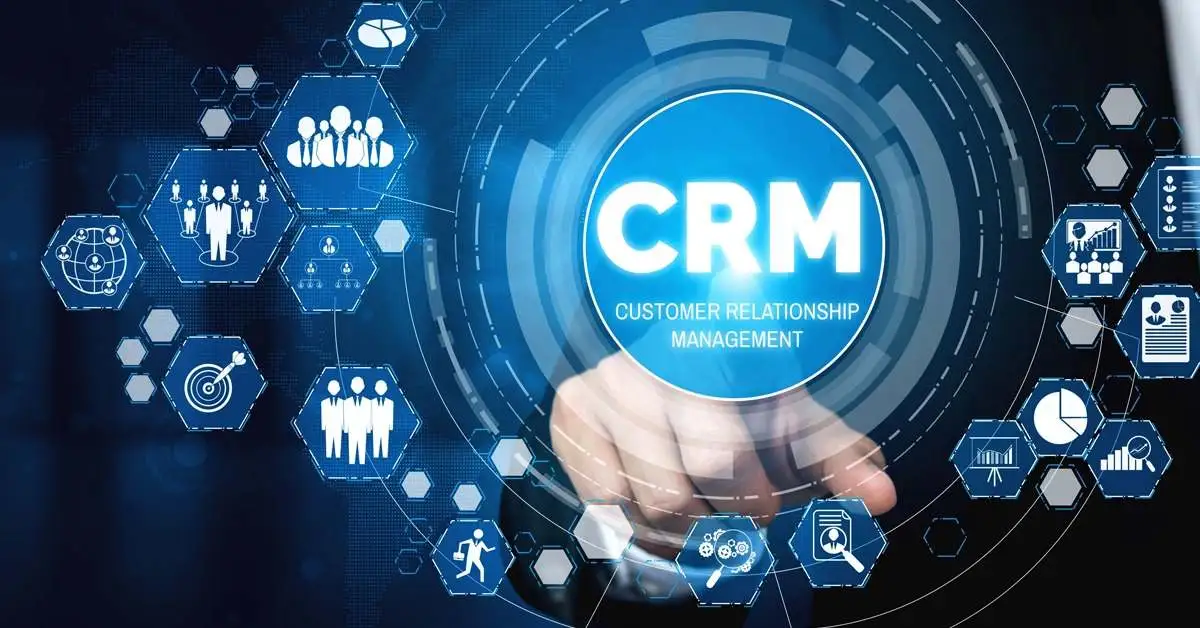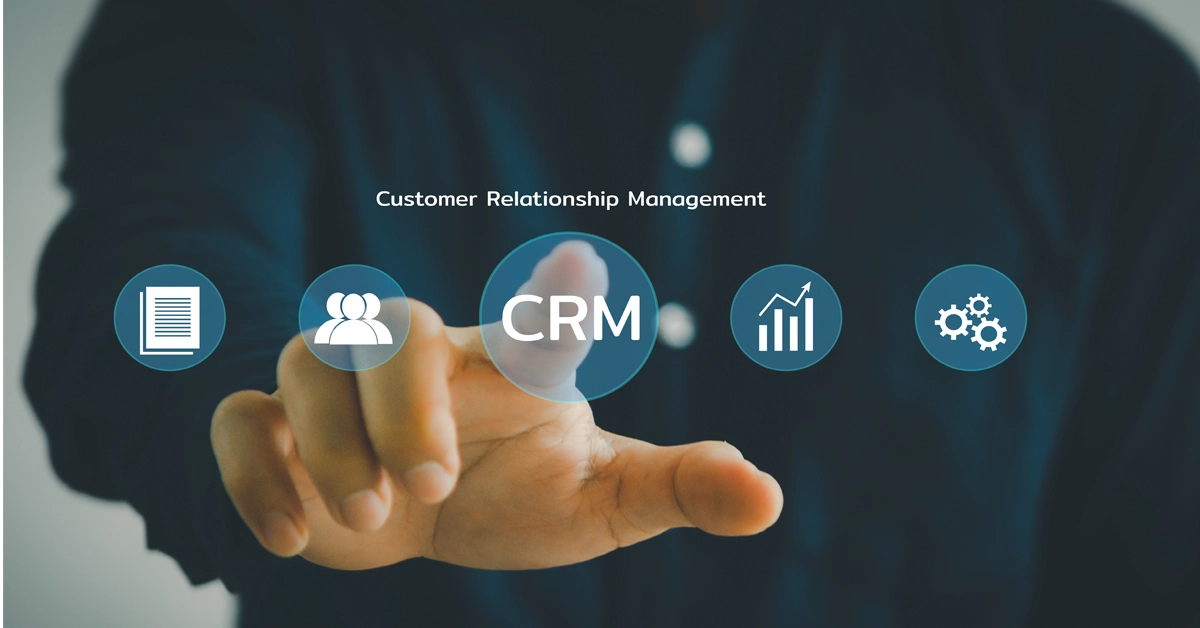5 Best E-Commerce CRM to Consider in 2024

91% of US businesses with over 10 employees are leveraging ecommerce CRM systems, making it clear that it’s a must-have tool, not an optional one.
A customer relationship management (CRM) system is a game-changer for managing customer interactions and data across multiple channels. It streamlines operations and drives sales through targeted marketing and insightful data analysis.
In this blog post, we will look at the top 5 e-commerce CRM software solutions and analyze their capabilities, features, and usability.
Table of Contents:
- How Does CRM Benefit E-commerce?
- 5 Best Ecommerce CRMs to Consider
- Top Features to Look for When Picking an Ecommerce CRM
How Does CRM Benefit Ecommerce?
An ecommerce business and CRM (Customer Relationship Management) have a symbiotic relationship.
E-commerce businesses rely on CRM to manage customer interactions and data, while CRM leverages the wealth of information generated by online stores to provide valuable insights.
Here’s how CRMs benefit e-commerce:
Helps you Better Understand Your Ideal Customers
CRM software collects data on customer purchases, browsing behavior, and communication preferences. By analyzing this data, you get a deeper understanding of your ideal customer profile (ICP).
Fuels Targeted Advertising
By building an (ICP) with the help of e-commerce CRM, you can create targeted advertising campaigns on different platforms or search engines. This helps you reach potential new buyers with characteristics similar to your existing customer base.
Boosts Sales
E-commerce CRM crunches customer data like purchase history and browsing behavior to create targeted marketing campaigns. This means you can send discount codes to lapsed buyers or recommend products people are likely to love.
CRM also goes beyond abandoned cart recovery. By understanding customer preferences, it can suggest complementary items at checkout, increasing the average order value.
5 Best Ecommerce CRMs to Consider
- Zoho CRM
- HubSpot CRM
- Omnisend
- Pipedrive
- Freshworks CRM
1. Zoho CRM
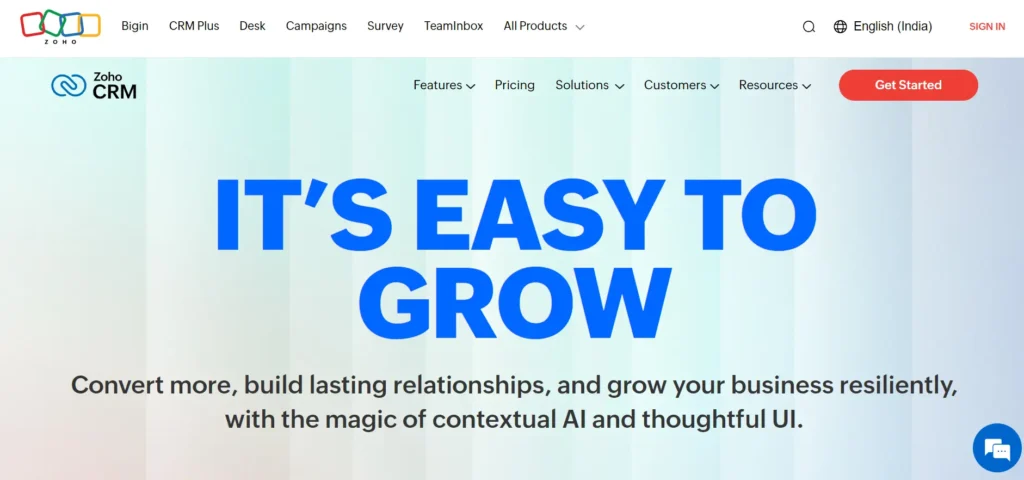
Zoho CRM packs a punch with features that supercharge your e-commerce business operations. This CRM offers a multi-channel approach, helping to manage customer relationships across various platforms, including email, live chat, and social media.
Key Features:
- User-friendly interface
- Workflow automation
- Contact management
- Create sales processes Automate leads scoring and management
- Get real-time insights about your customers
Pricing: Standard- $9; professional- $16; enterprise- $28; ultimate- $31 (per user, per month and billed annually)
2. HubSpot CRM
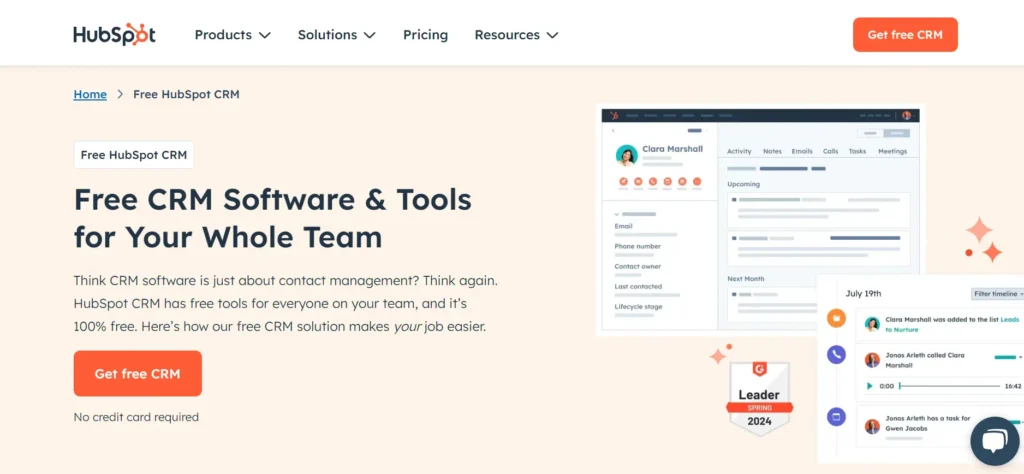
HubSpot is an all-in-one CRM software for e-commerce businesses. It’s easy to use and integrates seamlessly with other HubSpot marketing tools and e-commerce platforms like Shopify and WooCommerce.
Key Features:
- Track e-commerce metrics like conversion rates, customer lifetime value, and abandoned cart details
- Integration with marketing, sales, and service hubs
- In-depth reports and analytics
- Marketing automation tools
- Email tracking and engagement notifications
Pricing: Free tier available; paid plans start with professional- $800; Enterprise- $3,600 (per month)
3. Omnisend
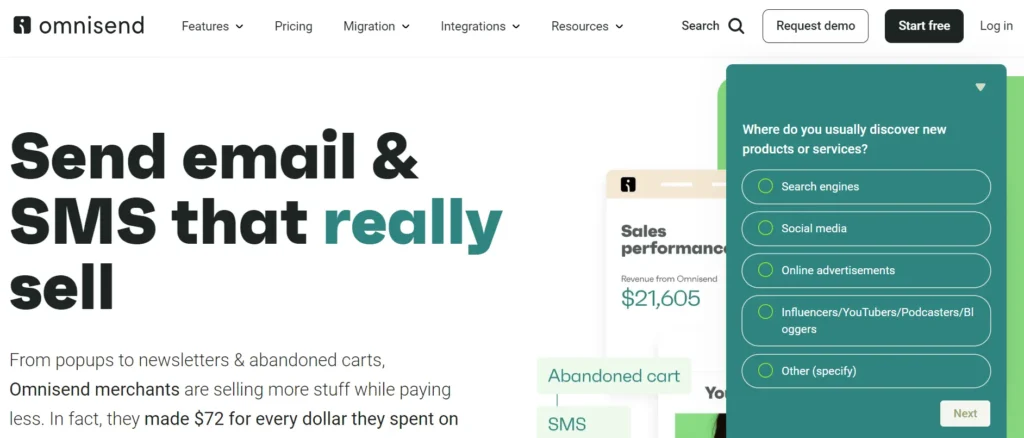
Omnisend is an email marketing automation platform designed specifically for e-commerce. It has a robust CRM built-in to help you automatically collect, analyze, and segment audiences of all your customer data.
Omnisend lets you launch targeted marketing campaigns across multiple channels like email and SMS. It also has seamless integration capabilities with various e-commerce platforms, such as Shopify, WooCommerce, Magento, and others.
Key Features:
- Multi-channel marketing automation for email, SMS, and push notifications
- Automation for cart abandonment, win-back campaigns, and welcome series
- Customer Segmentation based on shopping behavior and campaign engagement
- Reporting and analytics to track campaign performance
- Pre-made popups & forms
- Omnichannel marketing
Pricing: Omnisend offers a free plan with access to limited features. Paid pan starts with standard- $16, Pro- $59 (per month)
4. Pipedrive
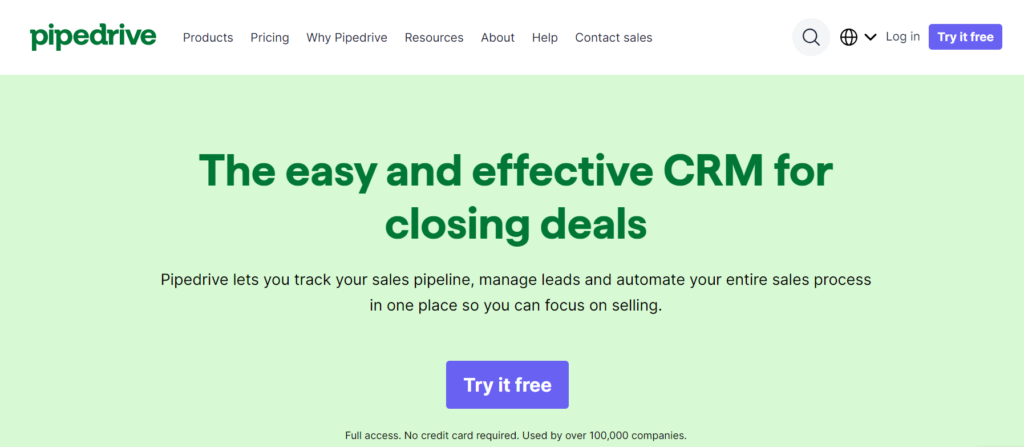
Pipedrive is a sales-focused CRM and an excellent choice for small e-commerce businesses prioritizing pipeline management. It simplifies tracking deals and managing sales processes, offering custom fields for capturing eCommerce-specific data to streamline your sales workflow.
Pipedrive CRM offers an intuitive interface that makes it easy to access actionable information and deliver personalized messaging.
Key Features:
- Customizable sales pipeline
- Lead capture and qualification tools
- Email integration and tracking
- Automation of repetitive tasks
- Detailed sales reporting and forecasting
- Product and pricing management
- Quote and order management
Pricing: Essential- $12, Advanced- $24, Professional- $49, Power- $59 (per user, per month and billed annually)
5. Freshworks CRM

Freshworks CRM is an all-in-one platform that is a great choice for e-commerce businesses that want to focus on customer relationships and marketing simultaneously.
It lets you track customer interactions, build a contact database, and provide a great service.
Key Features:
- Customer service features like live chat, ticketing system, and email marketing automation
- Ticket routing and automation
- Integration with various eCommerce platforms
- AI-based insights
- Reporting and Analytics
- Sales forecasting
Pricing: Growth- $9, Pro- $39, Enterprise- $59 (per user, per month and billed annually)
Top Features to Look for When Picking an Ecommerce CRM
While picking an E-commerce CRM, it’s important to find one that’s just right for your business size and needs. Here are some features you don’t want to miss out on.
1. Ease of Use
The CRM’s user-friendly interface ensures that your team can make the most of its features without a steep learning curve.
2. Seamless Integration
The CRM should be able to integrate with existing e-commerce platforms (such as Shopify, Magento, and WooCommerce), payment gateways, and other tools.
3. Customer Data Management
A good e-commerce CRM should provide detailed customer profiles that track purchase history, browsing behavior, and communication logs. This data is essential for understanding customer preferences.
4. Marketing Automation
Look for features in the CRM that allow for the automation of marketing efforts, including email marketing, social media campaigns, and targeted ads.
Automation helps manage campaigns efficiently and increase conversion rates by reaching customers with the right message at the right time.
5. Multi-channel Support:
Ensure the e-commerce CRM supports consistent communication across all channels, crucial for maintaining customer satisfaction and engagement.
6. Analytics and Reporting
CRM should have features that provide real-time insights into sales, customer behavior, and campaign effectiveness, which guide strategic decisions to drive growth.
Bottom Line
By choosing a CRM that fits the unique needs of your eCommerce business, you are setting the stage for better customer relationships, improved marketing, and a dramatic increase in sales.
Are you ready to move forward?
After you’ve shortlisted a CRM, try a demo first. The right CRM can take your business to new heights!
Related Post
Copyright © gocustomerexperience.com. All Rights Reserved.



